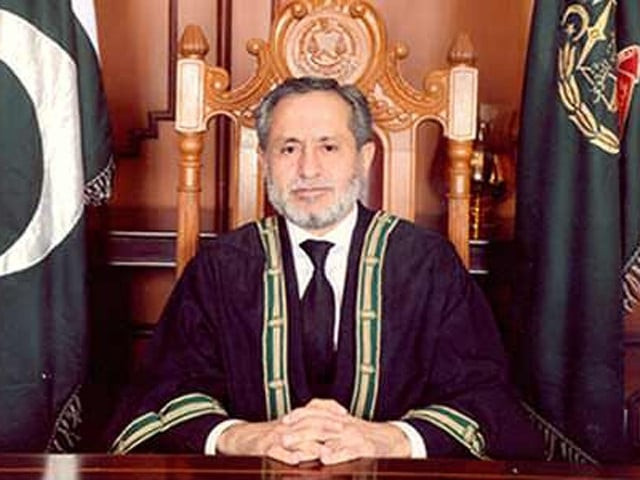ISLAMABAD:
Meetings of the Judicial Commission of Pakistan (JCP) subcommittees led by Justice Jamal Khan Mandokhail have been scheduled for August 21 to prepare draft rules for the annual judicial performance evaluation of high court judges, as well as criteria for the selection of judges for constitutional benches.
Chief Justice of Pakistan (CJP) Yahya Afridi had earlier formed two committees led by Justice Mandokhail. Other members include Attorney General for Pakistan (AGP) Mansoor Awan, Senator Farooq H Naek (from treasury benches), Senator Ali Zafar (from opposition benches), and Pakistan Bar Council representative Ahsan Bhoon.
The first committee was to draft proposed rules to establish effective standards for the annual performance evaluation of high court judges under Article 175A(20) of the Constitution, inserted through the 26th Constitutional Amendment.
The CJP had constituted this committee during the JCP meeting on June 19.
Earlier, CJP Afridi had also formed a committee comprising the same members to draft an objective criterion for selecting judges for constitutional benches.
A notification issued in this regard stated that, in light of the chairperson’s decisions during three JCP meetings held on February 28, the committee was tasked with drafting objective criteria for the appointment of judges under Clause (4) of Article 175A of the Constitution and for the selection of judges for constitutional benches under Articles 191-A and 202-A.
Interestingly, the JCP had decided to form a rules committee in January, and CJP Yahya Afridi issued its notification on March 4. However, the committee has not held any meeting for the last five months.
Legal experts have since questioned why the committee was not constituted immediately after the passage of the 26th Amendment. Since its enactment, judges for the Supreme Court and Sindh High Court’s constitutional benches have been appointed without a structured selection process.
The government, however, has been fully satisfied with the performance of the Supreme Court’s constitutional benches, which endorsed the trial of civilians in military courts, approved the transfer of judges from different high courts to the Islamabad High Court, and annulled the reserved seats decision that had declared the PTI entitled to reserved seats after the 2024 general elections.
Meanwhile, the constitutional bench has yet to take up petitions challenging its very creation. Lawyers have also raised questions about the wisdom and logic behind the nomination of a particular set of judges for constitutional benches, pointing out that judges perceived as critical of the present regime are often excluded.
Advocate Rida Hosain expressed surprise that a judge elevated only a few days ago could be nominated to a constitutional bench, while several senior Supreme Court judges with extensive constitutional expertise were not. In the absence of clear criteria, she noted, such nominations appear arbitrary.
Soon after the passage of the 26th Constitutional Amendment, SC senior puisne judge Syed Mansoor Ali Shah had called for establishing clear guidelines for nominating and determining the number of judges on constitutional benches.
“The commission has already nominated and determined a number of judges of the Supreme Court and the Sindh High Court for the CBs in the absence of any mechanism or criteria in place,” Justice Shah wrote in a nine-page letter to the JCP secretary in December last year.
“Therefore, there has been no logic or reason backing the nomination and determination of the number of judges for the CBs.” Justice Shah stressed that nominations under Articles 191A and 202A of the Constitution cannot be made in a vacuum, and that the JCP must first establish objective criteria through the proposed rules.
He suggested that such criteria could include the number of reported constitutional judgments authored by a judge, including dissents or additional notes, while serving on larger benches that heard significant constitutional cases.

